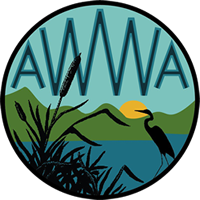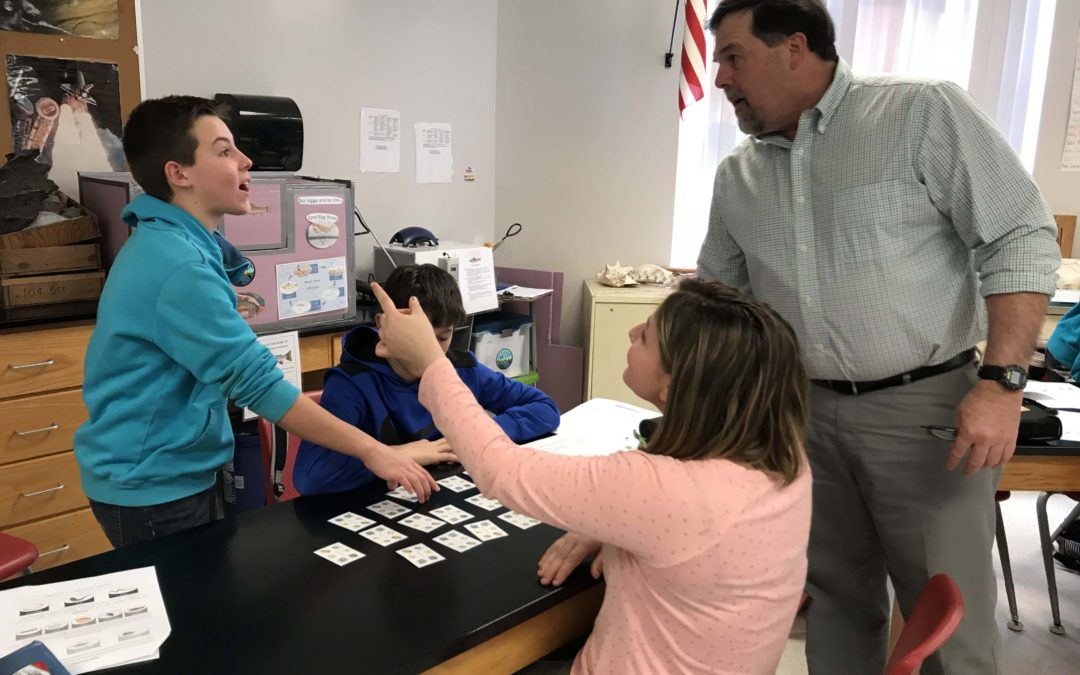Last week the Paul School’s 4th grade, and Acton Elementary’s 7th grade, learned about how to determine water quality based on the types of macroinvertebrates or “water bugs” you find in a stream. These macroinvertebrates are important because once our brook trout are released, they will rely on these water bugs for food! We want to release our trout into the healthiest stream possible, and macroinvertebrates are a good indicator of stream health.
For the 4th grade this was a new concept. Different types of water bugs have different tolerance levels? Huh? On the other hand, my conversation with the 7th grade left the students with a sense of déjà vu…
Basically, some bugs can survive if there’s a lot of pollution, some can handle some pollution, and some are very sensitive and cannot survive if there’s pollution.
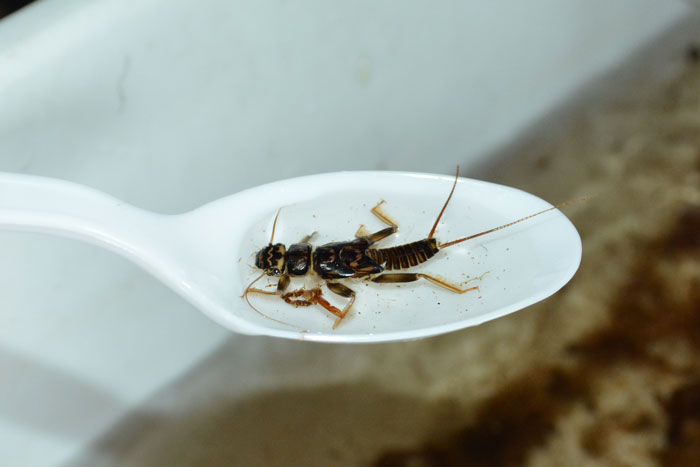
The 7th grade learned this concept in the 6th grade when AWWA took them on a field trip to the Province Lake Golf Course to do stream sampling. The students collected macroinvertebrates, identified them, and determined if their streams were healthy. This year now that they’re raising trout, we connected the dots between healthy streams, macroinvertebrates, and our trout.
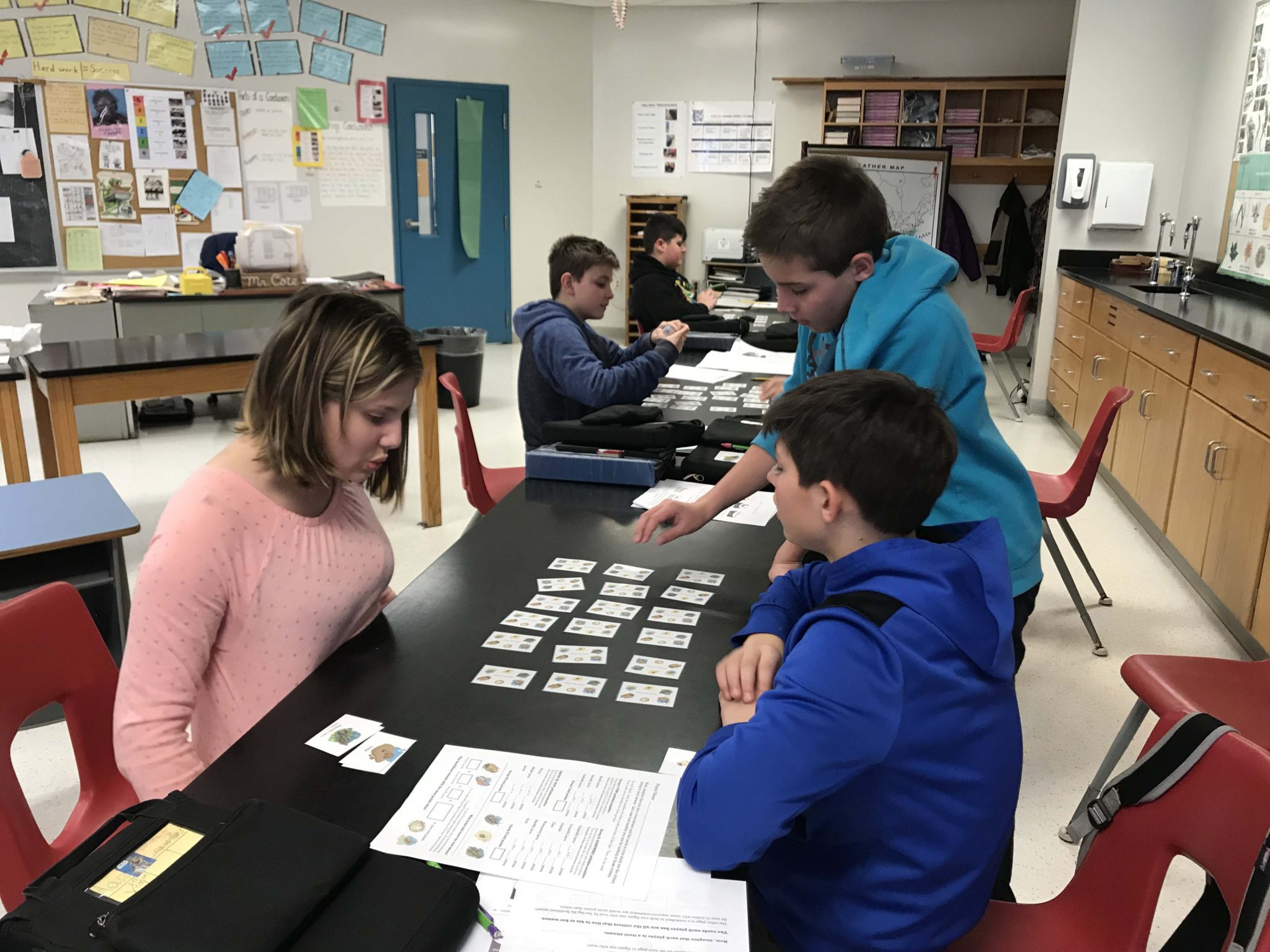
After covering the basic concept of macroinvertebrates and their pollution tolerance levels, the students played a game borrowed from Trout Unlimited called “Catch the Critter”. It’s basically match game, where you have to flip over cards with water bugs on them until you find a matching pair. However, you get more points if you “catch” sensitive water bugs, meaning that they need healthy water, and you get less points for water bugs that can survive in polluted water.
In this game it’s not about who gets the most matching pairs, it’s about who gets the most points! I gave the students some freedom to make up their own rules, and the Acton students got especially creative. They edited the rules to make it a more challenging game, and therefore much more competitive. Although fun, this game reinforced the idea that you want to find sensitive water bugs, because that means healthy water!
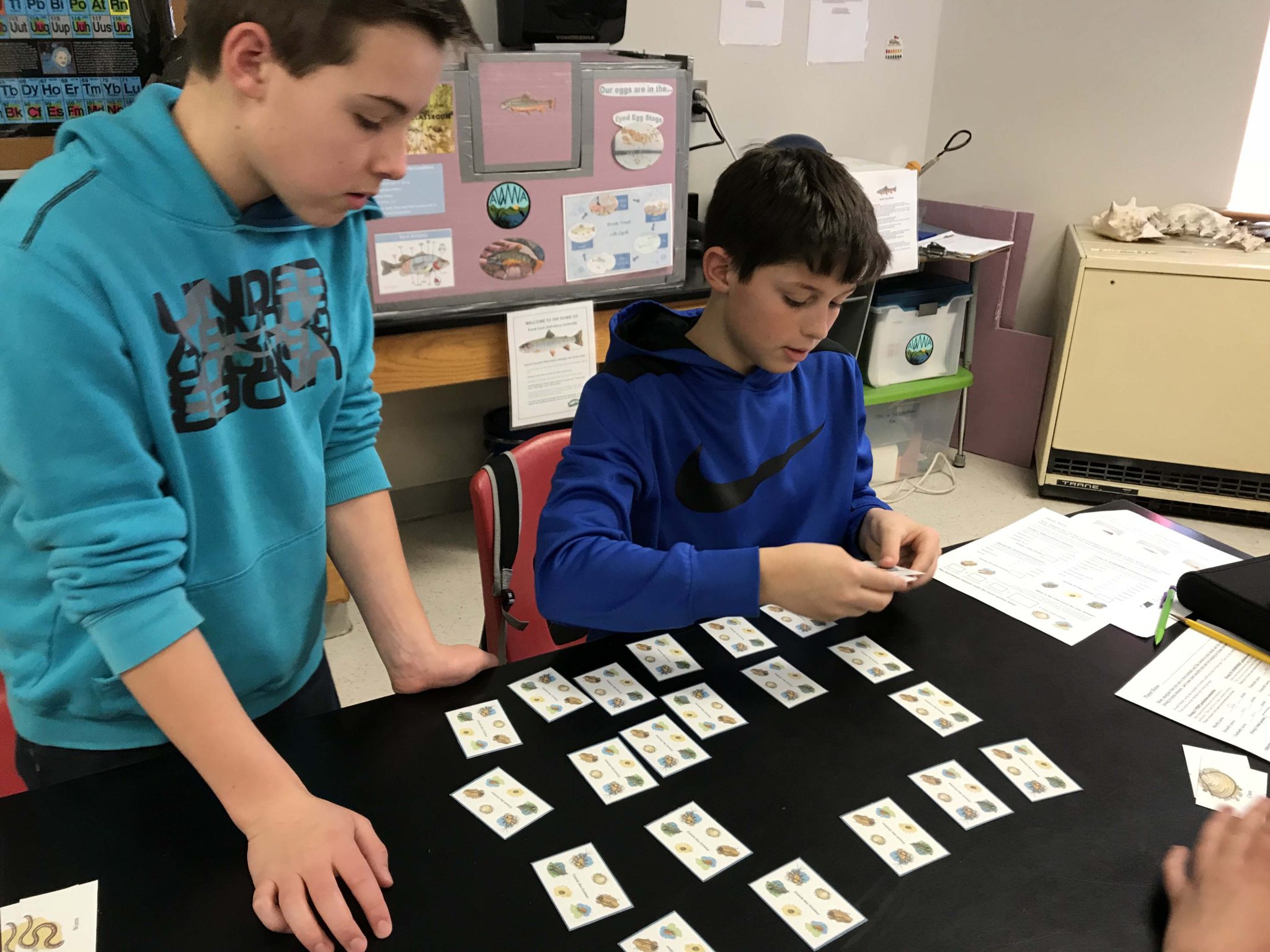
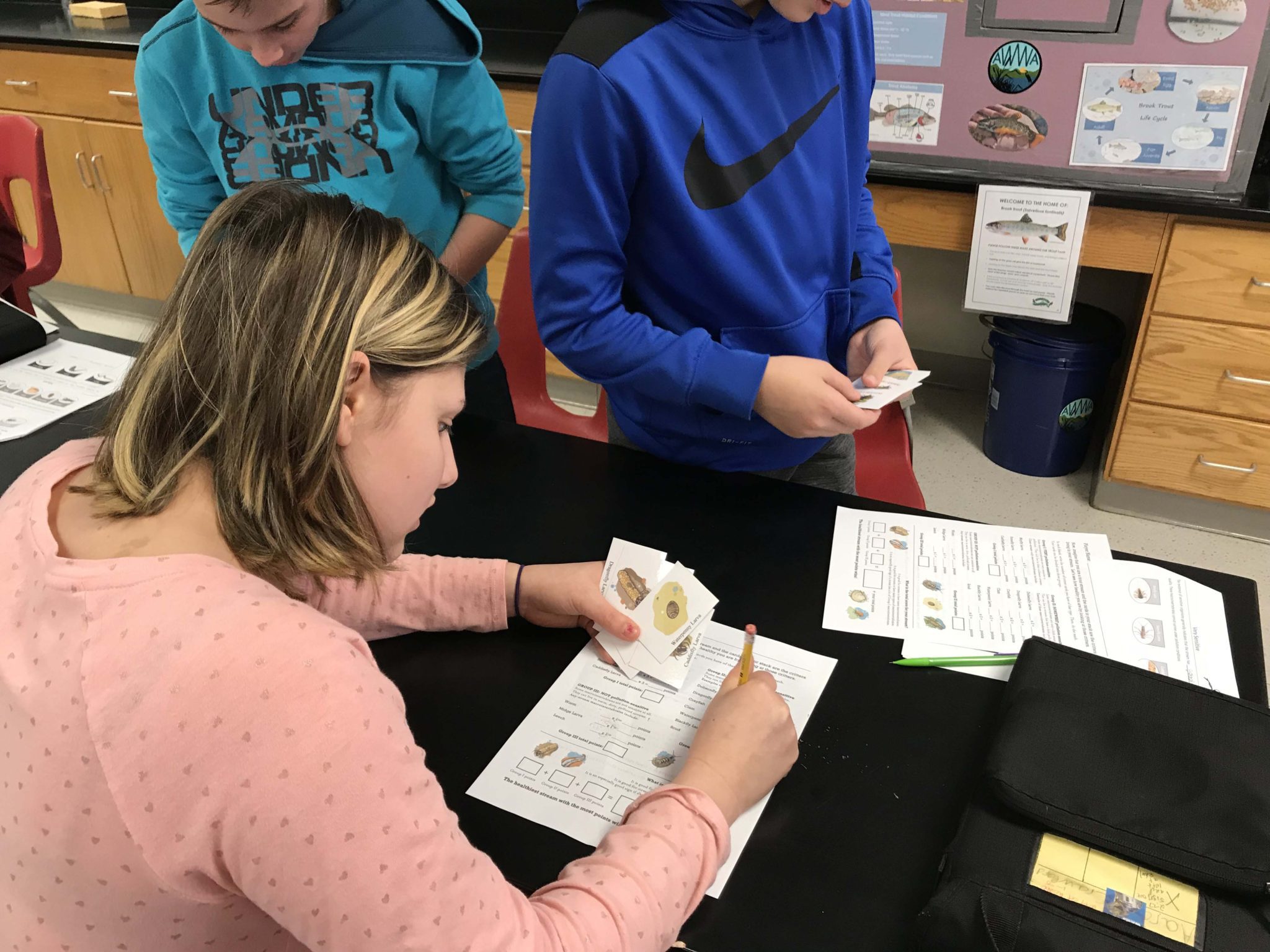

Keep checking back in with us for all things trout!
Check out our previous Trout in the Classroom blog posts:
Tank Tales: Acton’s Brook Trout Eggs Arrive!
Tank Tales: Acton Student Asks “That’s cool, but why?”
Tank Tales: Brook Trout Eggs Arrive in Wakefield!
Welcome Back to Tank Tales!
AWWA in the Schools!
Tank Tales Update #5
Tank Tales Update #4
Tank Tales Update #3
Tank Tales Update #2
Welcome to Tank Tales!
